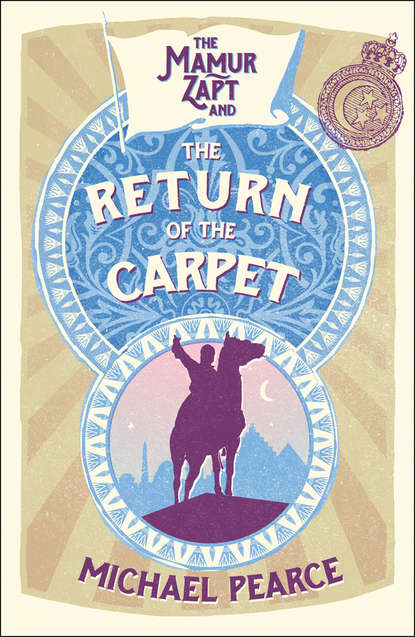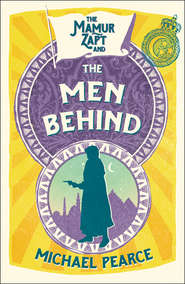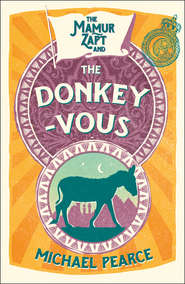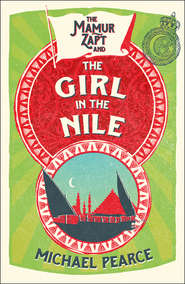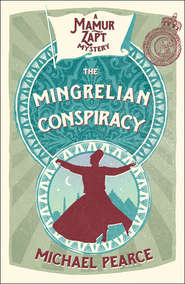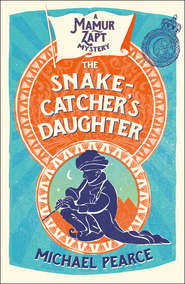По всем вопросам обращайтесь на: info@litportal.ru
(©) 2003-2024.
✖
Mamur Zapt and the Return of the Carpet
Автор
Год написания книги
2019
Настройки чтения
Размер шрифта
Высота строк
Поля
There was an Egyptian in McPhee’s room. He was short and plump and apparently very agitated. McPhee was pouring him a glass of water, which he took with effusive thanks and much mopping of his brow. From behind the silk handkerchief steady brown eyes registered Owen’s arrival.
‘Ah!’ said McPhee, catching sight of Owen as he turned: ‘Captain Cadwallader Owen.’
This, too, was an exaggeration. A romantic Welsh mother had insisted on preserving a remote family connection through the middle name, and Owen had once made the mistake of signing his name in full in McPhee’s presence. The Scotsman, another romantic, had ever afterwards insisted on using both barrels.
‘Do you know Fakhri Bey? No?’
They shook hands.
‘Fakhri Bey was passing when it happened.’
‘I was in an arabeah,’ the Egyptian explained. ‘There was nothing I could do. So I told the driver to drive on and came straight here.’
‘I’m very glad you did,’ said McPhee. ‘We’ll get there right away.’
He picked up his sun helmet.
‘In fact, if you’ll excuse us—’
‘Of course. Of course,’ the other protested.
They set off down the corridor.
‘You don’t want me, do you?’ asked Owen.
Normally the Mamur Zapt, as Head of the Political Branch, did not reckon to concern himself with routine killings.
‘Certainly I do,’ said McPhee over his shoulder.
Owen would have preferred to have carried on with the estimates. They were not especially complex but required a certain attention, and he had set aside the morning for that purpose. His predecessor-but-one had been dismissed for corruption and Owen was sensitive on financial matters.
However, he collected his helmet and joined McPhee at the front of the building. The large square of the Bab el Khalk was empty of transport except for one carriage which Fakhri Bey was just getting into.
He stopped as he saw them.
‘You would be very welcome to share my arabeah,’ he said.
‘May we?’ said McPhee. ‘There doesn’t seem to be any other. It would be taking you back—’
‘Not at all,’ said Fakhri. ‘It would be a pleasure.’
The carriage was one of those with two horses and could take three passengers at a pinch. McPhee and Owen wedged themselves in around Fakhri, and the driver, after a great display of urgency, managed to get the horses going at a steady amble along the broad thoroughfare of the Sharia Mohammed Ali.
‘And now,’ said Owen, ‘perhaps you could tell me exactly what happened where.’
‘Nuri Pasha was shot,’ said Fakhri. ‘It was dreadful. I am so sorry. He was a friend of mine, you know,’ he said, glancing sideways at Owen.
‘A good chap,’ said McPhee supportively, but then McPhee considered many people to be good chaps whom Owen knew to be consummate rogues.
‘And where did all this happen?’ he asked.
‘In the Place de l’Opéra,’ said Fakhri, ‘right in front of my eyes. I could not believe it. I could not believe it.’
‘You actually saw the shooting?’ asked Owen, putting a heavy accent, and not too sceptical a one he hoped, on the word ‘saw’.
‘Yes,’ said Fakhri. ‘Yes, I did.’
He hesitated.
‘Or, at least, I thought I did. I was sure I did.’
Again the sidelong glance at Owen.
‘Now I am not so sure,’ he said.
‘Come,’ said McPhee, sympathetic as usual. ‘You certainly did. You told me all about it.’
‘Yes,’ said Fakhri. ‘I know. And I told you what I thought I saw. But when Captain Car—’ Fakhri mumbled a bit—‘Owen asked me in that sharp way of his and I try to recall detail, what seemed clear suddenly becomes misty.’
‘Well,’ said Owen, brightening, ‘that’s a start anyway.’
The usual problem with Egyptian witnesses was not that they could not recall but that they recalled only too well.
‘I expect you’re used to this,’ said Fakhri. ‘The fallibility of witnesses? My legal friends, without exception, assure me that eyewitnesses are not to be trusted.’
‘It’s a funny business,’ said Owen, ‘what you see and what you don’t see.’
‘I thought I saw. Clearly.’
‘Perhaps you did. Start again. Where were you when all this was happening?’
‘In an arabeah.’
‘Which was—precisely—where?’
‘I had come down the Sharia el Maghrabi. I was just crossing the Place de l’Opéra.’
‘Past the statue?’
The statue of Ibrahim Pasha, the famous Egyptian general who had led his army to within a hundred miles of Istanbul, was a well-known Cairo landmark.
‘Right by the statue. I was about to go down the side of the Ezbekiyeh Gardens.’
‘Fine. And you saw?’
‘I saw Nuri Pasha. I think he had just come out of the Hotel Continental. He walked right out into the Place, looking for his arabeah. I think.’
‘About how far from you?’





